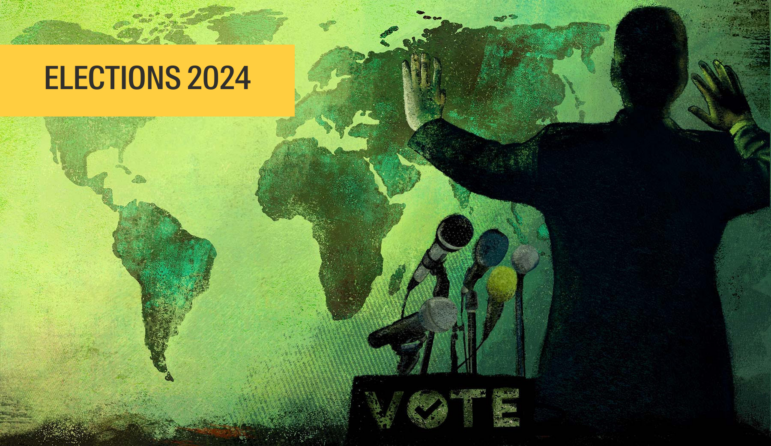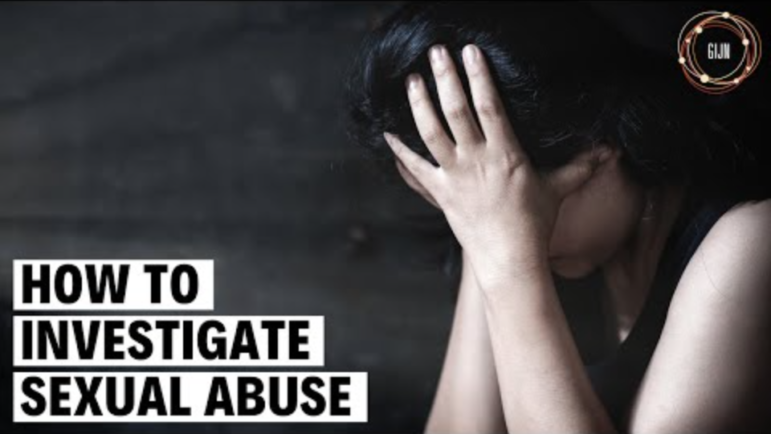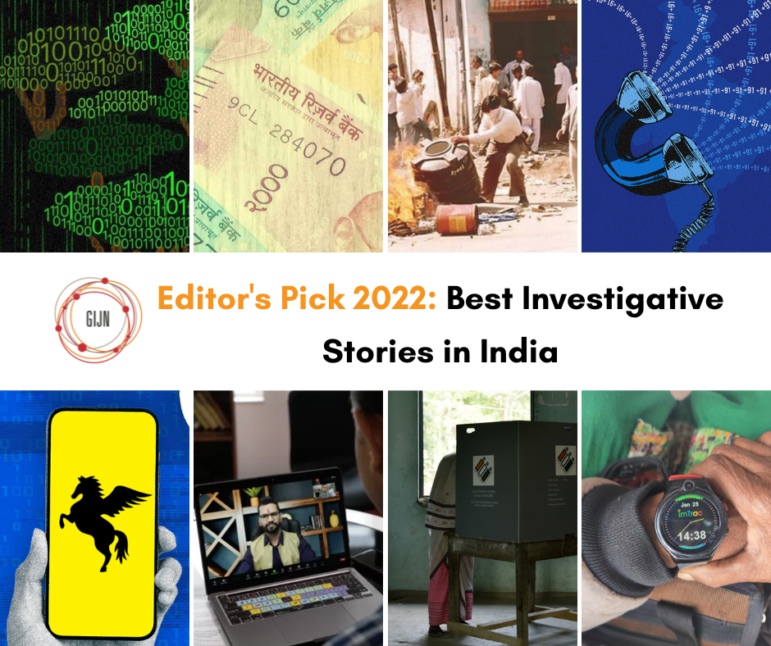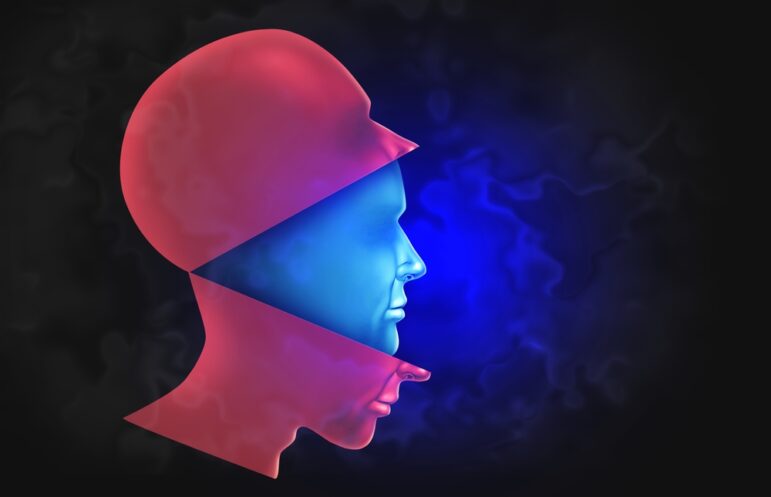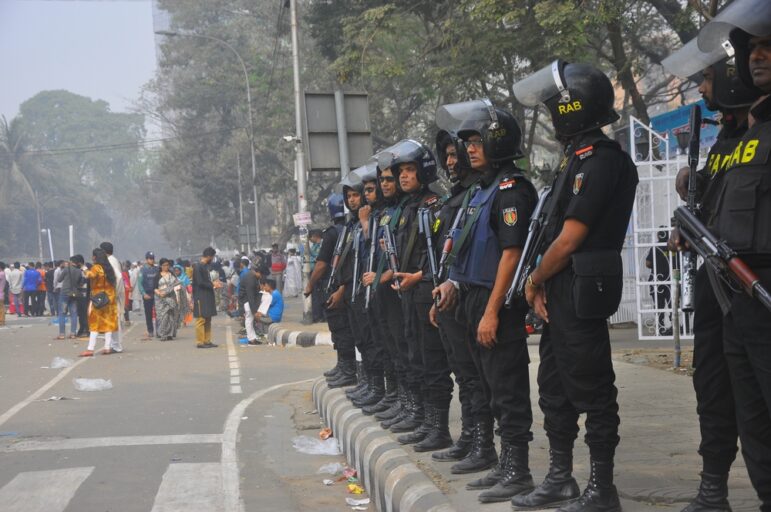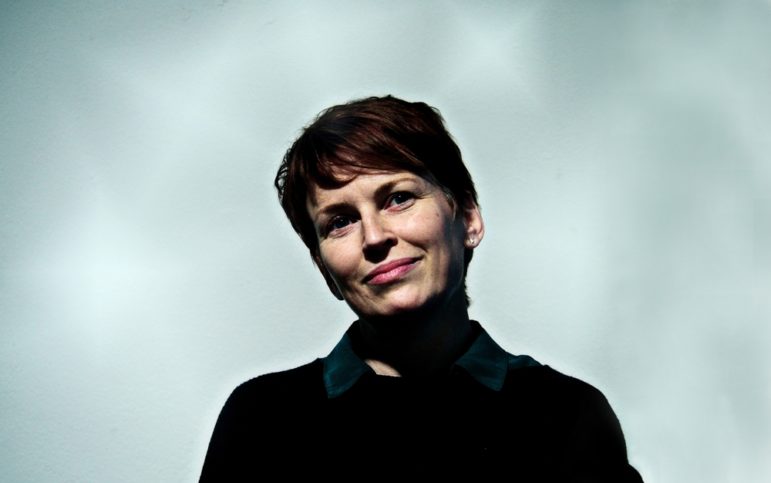

Q & A with OCCRP’s Czech Reporter Pavla Holcová
Read this article in
Pavla Holcová is an investigative journalist and founder of the Czech Centre for Investigative Journalism, an independent outlet that does cross-border investigations on organized crime and its impact on the Czech Republic (Czechia) and Slovakia.
Holcová also serves as Central Europe editor for the Organized Crime and Corruption Reporting Project. Her Czech Centre is an OCCRP member (as well as a member of GIJN). In recent years, she has worked in a series of groundbreaking financial investigations, including the Pandora Papers, where her team exposed how the then-Czech Prime Minister Andrej Babis moved millions of euros through offshore companies to buy luxury real estate in France. Their investigation was published a few days before elections, which Babis lost.
Another project was the Azerbaijani laundromat, an exposé that revealed how the Azerbaijani ruling elite used shell companies to pay off European politicians, launder money, and buy luxury goods. According to the investigation, around US$2.9 billion was funneled through European banks and other companies between 2012 and 2014. She’s also been involved in the Panama Papers, the Pegasus Project, and the Russian laundromat, which exposed a scheme to move US$20-80 billion out of Russia through international banks, many based in Moldova and Latvia, between 2010 and 2014.
A Fateful Call
In February 2018, Holcová received a call: her friend and colleague Slovak journalist Ján Kuciak and his fiancée Martina Kušnirová, had been murdered. At the time, she was working with Ján on a story connecting the Slovak government with the ‘Ndrangheta, a powerful Italian mafia group.
Holcová vowed to finish the investigation and organized a collaboration with other journalists to investigate the murder of Kuciak and his fiancée. OCCRP, her Czech Center, the Investigative Reporting Project Italy (IRPI) and Kuciak’s outlet Aktuality.sk published A Murdered Journalist’s Last Investigation, a series of articles that set the record straight. She and the team also secured a leak of over 50 terabytes of data on the police investigations into businessman Marian Kočner, whose financial crimes Kuciak was investigating. Their investigation — Kočner Library — exposed Slovakia’s corrupt political system and forced several officials to step down, including the president and the prime minister. Senior police officials also resigned and close to 21 judges were charged with corruption and obstruction of justice.
Holcová features in the film The Killing of a Journalist, co-produced by OCCRP and Final Cut for Real. The movie follows her and her colleagues as they uncover the leaked police files from the investigation of Kuciak and Martina’s murders.
Holcová has received numerous awards for her work, but also threats and abuse from those she has exposed. She has received anonymous threatening messages, with warnings that the sender knew where she lived. When she and her colleagues published their story about Prime Minister Babis’ corruption, they were labelled as agents paid by foreigners to destroy Czechia’s fair elections. I recently spoke to Holcová about her motivations, the way she and her colleagues protect themselves, and the kind of stories they’d never do.
Q: Why did you decide to become an investigative journalist?
Pavla Holcová: I studied journalism and my first job was working on online news, which was pretty much like rewriting already reported news by agencies. So I told myself that is not the kind of journalism I would like to do. Then I met Paul Radu from the OCCRP in 2013, and he talked about cross-border investigative journalism. That’s when I decided that this was exactly the kind of journalism I wanted to do, so I started doing it.
Q: What motivates the kind of stories you report on?
PH: There are a couple of basic rules that we abide by. For instance, we don’t do stories that are given to us. If a politician or someone from the Secret Service comes and offers you the story, then it’s not smart to do it because you could be part of a bigger scheme for their personal or organizational interests. So those are the stories we don’t do. Otherwise, we pretty much explore any field from arms smuggling and money laundering to the cocaine trade.
Q: What are some of the challenges of being an investigative journalist in Central Europe?
PH: In our case in the Czech Republic, I’d say mostly burnout and threats and smear campaigns from politicians. For instance, former Prime Minister Babis is the owner of the biggest media house. So for him to start a campaign about journalists like us is very easy. Otherwise, it is kind of silent, apart from the murder of our colleague Ján Kuciak, which happened in Slovakia.
Q: How do you navigate some of the challenges that you’ve mentioned?
PH: I am working with a team of wonderful people both on the Czech team and the international team. That keeps me motivated and when I’m frustrated, angry and exhausted, they always help me to get back on my feet.
Q: How do you and your colleagues support each other?
PH: We support each other a lot, and I believe it is because we work in a somewhat more challenging environment due to the nature of our job. We build slightly different principles than commercial media. We don’t see other colleagues as rivals, but as people who can help us with our story. For many journalists this is a new concept, but it’s very important for us. Otherwise, we would probably burn out much faster.
Q: What tips do you have for dealing with burnout?
PH: I strongly advise anyone facing burnout to read books or novels before going to bed. It keeps you from dreaming about the stories they are working on. For instance, I frequently read six or seven novels at once.
Q: You have worked on investigations that expose powerful individuals or organizations, which might be risky. How do you investigate a story or an individual safely while getting the full story?
PH: It’s kind of tricky for me to answer this question because I live in one of the safest countries in the world. At the same time I investigate the Balkans and politicians in other countries, so doing investigative work in other countries probably helps. But of course, we are always careful and also try to be fair in our reporting. We talk to the subjects that we are reporting on and give them the opportunity to comment on the story.
Q: Could you share some of the lessons you’ve learned along the way that anyone getting into investigative journalism should learn?
PH: What I have learned is how important sharing is. And I’m not only talking about sharing experiences or frustrations or happiness. I’m also talking about sharing data, original documents, and the drafts of your stories. This was quite visible in the case of the murder of Ján Kuciak and his fiancée. If we were able to finish all the stories he was working on, it was because he had shared his Google Drive with me and I had access to all his files and investigations. This helped me finish the stories he had started. So sharing is a very simple tool but super important.
Q: Threats to independent journalism are on the rise globally. How can journalists navigate these threats?
PH: As journalists, we need to talk more to our readers and explain that we have only very limited ways to defend ourselves. If we explain to our readers that we work for them, they’ll stand up for us in case of need.
Q: What would you say is your best work?
PH: A project I’m most proud of is also the most difficult I’ve ever done: investigating the murder of Ján Kuciak and then coordinating a team of journalists who exposed the system that enabled the murder. It was the most difficult because we were really good friends with Ján and when you need to investigate the murder of your good friend, it’s very challenging.
This interview was originally published by the Reuters Institute for the Study of Journalism and is reprinted here with permission.
Additional Resources
Czech Investigative Nonprofit Follows the Money
Why I Think Slovak Journalist Jan Kuciak’s Murder Will Never Be Investigated
Guns, Politics and Media: A Look at Czech Investigative Journalism
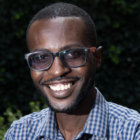 Maurice Oniang’o is a freelance multimedia journalist and documentary filmmaker based in Nairobi, Kenya. He has written for GIJN, National Geographic, 100 Reporters, Africa.com, and Transparency International, among others.
Maurice Oniang’o is a freelance multimedia journalist and documentary filmmaker based in Nairobi, Kenya. He has written for GIJN, National Geographic, 100 Reporters, Africa.com, and Transparency International, among others.

